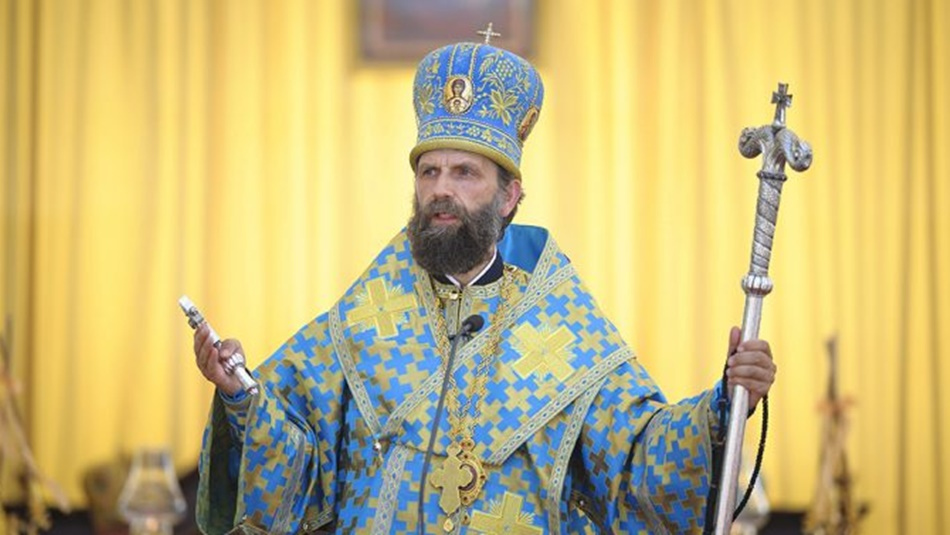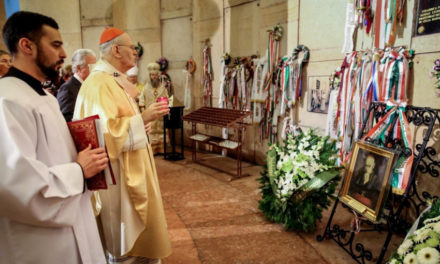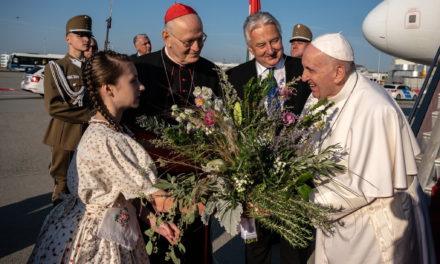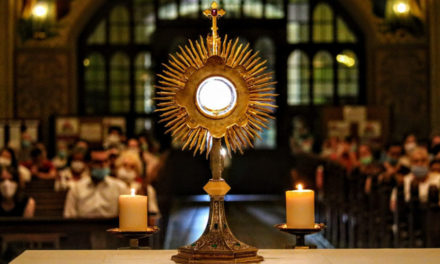There is nothing to condemn if a Christian votes for parties that support Christian values - wrote Fülöp Kocsis, archbishop-metropolitan of Hajdúdorog Archdiocese, in his open response letter published on the Mandiner.hu page he published in the columns of 168.hu "Can a believing Catholic vote for the FIDESZ-KDNP to?" reacted to the article.
Dear András Máté-Tóth!
article , written for the opposition campaign , about whether a devout Catholic can vote for the FIDESZ-KDNP.
I do this as a church leader, but also as a simple Christian person striving to follow Christ. You ended your article with an interesting twist, in which you tried to contrast Christian-minded people with the government currently leading the country. That you openly referred to the ballot boxes and thereby made it quite obvious that this is a campaign text that wants to persuade the deceived reader not to vote for the parties leading the government as a Christian.
What is your intention with this, András? You apparently want to expose, enlighten with simple facts and point out unforgivable mistakes, but in the meantime there are countless slips in your thought process, which makes it obvious to the attentive reader before, not only at the end, that this is a simple piece of propaganda. You mention one of the cruel tools known in the political struggle as reprehensible - character assassination, which is unfortunately used everywhere in the extremist campaign struggle. Well, that's what you're using with this article. If not against a well-known person, but against the two governing parties, as if suggesting that you can vote for anyone, but not them. Thanks for the advice.
If I started from the end of your article, I'm going backwards.
Nationalism. I can testify that it is nice to be Hungarian in this country.
It's good to be proud of being Hungarian.
We did not experience this during the time of other governments, so it is obvious that the parties professing Christian values emphasized this as well. Thank God, because it was needed. It is also needed in the international public opinion that mixes nations and increasingly suppresses national values, and even attacks them. Yes, it must be protected or it will be lost. Whoever labels this fearful love as a separatist ideology that only pursues individual interests either does not understand the concept of patriotism, or if he does, he prefers to give it up in favor of the more appealing and expected main line. There is no need to blame patriotism for devaluing other nations. As far as I know, there has never been a statement by our leading politician that other nations are vile, worthless, and inferior. It is therefore unfair to impose this on them.
Censorship. We publish many books and publications. I am completely surprised to read the statement that censorship and self-censorship prevails in church publications or events. I don't know what are the countless experiences during which such events have received political criticism. Maybe there was such an excess, I didn't encounter it. I can honestly say that although I have been present at many church events, I have never experienced or even heard of this. Of course, it can be blamed on me that it's because I'm a good bishop. The fact is that when we receive support for a church, school, social or other institution, we thank the supporters, whether it was direct government support, or in the form of TAO from other entrepreneurs, or individual or any kind of donors. I think it's natural.
Yes, the government wants to support churches and religious institutions,
because he sees that Christian values, respect, decency, moderation, but above all dedication make the operation of institutions much more efficient, not just individual human life. Before you accuse me of unfoundedly canonizing church people, I hasten to add that there is obviously a lot of trouble, abuse, and indignity in church institutions as well. There are just as frail people there as elsewhere. Man is good and bad at the same time, whether he is a believer or an unbeliever. But when one of the main objectives of an institution is the love of God and humanity, there is a somewhat greater chance that something will come true from this, than where it is treated indifferently or is the object of ridicule.
Politics of hate. Unfortunately, it has a very strong presence in our society. I also think that the political or any leader who makes a profit out of this is doing it wrong. But to measure which side works better in inciting hatred, well, there is no instrument that can show all this well. Under the guise of equality and sensitivity, the new ideologies that distort personality incite hatred against those who think differently. Dissident Hungarian politics is simply a target for the main Western political forces. With falsified pictures, films, cartoons (!), they make the prime minister of our nation a hated figure. One's hands clench involuntarily when one sees and hears such things in Western countries. And there is quite a bit of it. The fact that someone else is doing it is of course no excuse for guilt, but for the sake of clarity, it must be stated that this is how political public thinking has become today. Applying this to a single party brings to mind the story in which one of the two naked men loudly points out to the other that he is naked.
You start the polemic with an interesting sentence, or rather a brainwashing effect.
According to your opinion, and you call on the results of religious researchers to help you, between 1996 and 2012 there was a significant change in the party preferences of believers, especially practicing Catholics. Of course, this can be easily traced even by non-researchers, but the illumination of the causes largely depends on where we place the light source, what we illuminate, or what we want to see and show. You are talking about the right wing of Fidesz, following the moment or process of the current prime minister's profile change, conversion.
Andrew! I understand that you are a person of faith who believes in conversion and personal maturation. Or isn't it? At least I believe so. The people who rebelled against the communist oppression as students saw only that this had to be changed. In the meantime, the rebellious youths became more and more responsible thinking politicians, and some of them became statesmen in their mature years. There is no need to be so surprised about this. This is not a move to the left or to the right, but a development that can be clearly traced in the two parties that are slowly becoming historical, which existed from the beginning and were obviously formed during the past 30 years. Not like the beggarly partisans, which are born and die, their members appear here and there like hidden streams. Is this perhaps a better political role than continuous maturation?
I do not agree with your opinion that the church should keep an equidistance from the parties.
The Gaudium et Spes constitution you quote speaks of universality, not neutrality. Of course, the church cannot depend on either a political system or a political party. But support and cooperation are not the same as dependence and paralysis. It is certainly easier for us to cooperate with parties that help and support our work. I cannot fathom what should be condemned in this.
It is also obvious that it would be difficult to cooperate with parties that openly oppose Christian values and the credibility of church work. Therefore, I think there is nothing to condemn if a Christian person votes for parties that support Christian values. Don't talk them out of it!
Source: Mandiner/Sunday
Image: MTI













